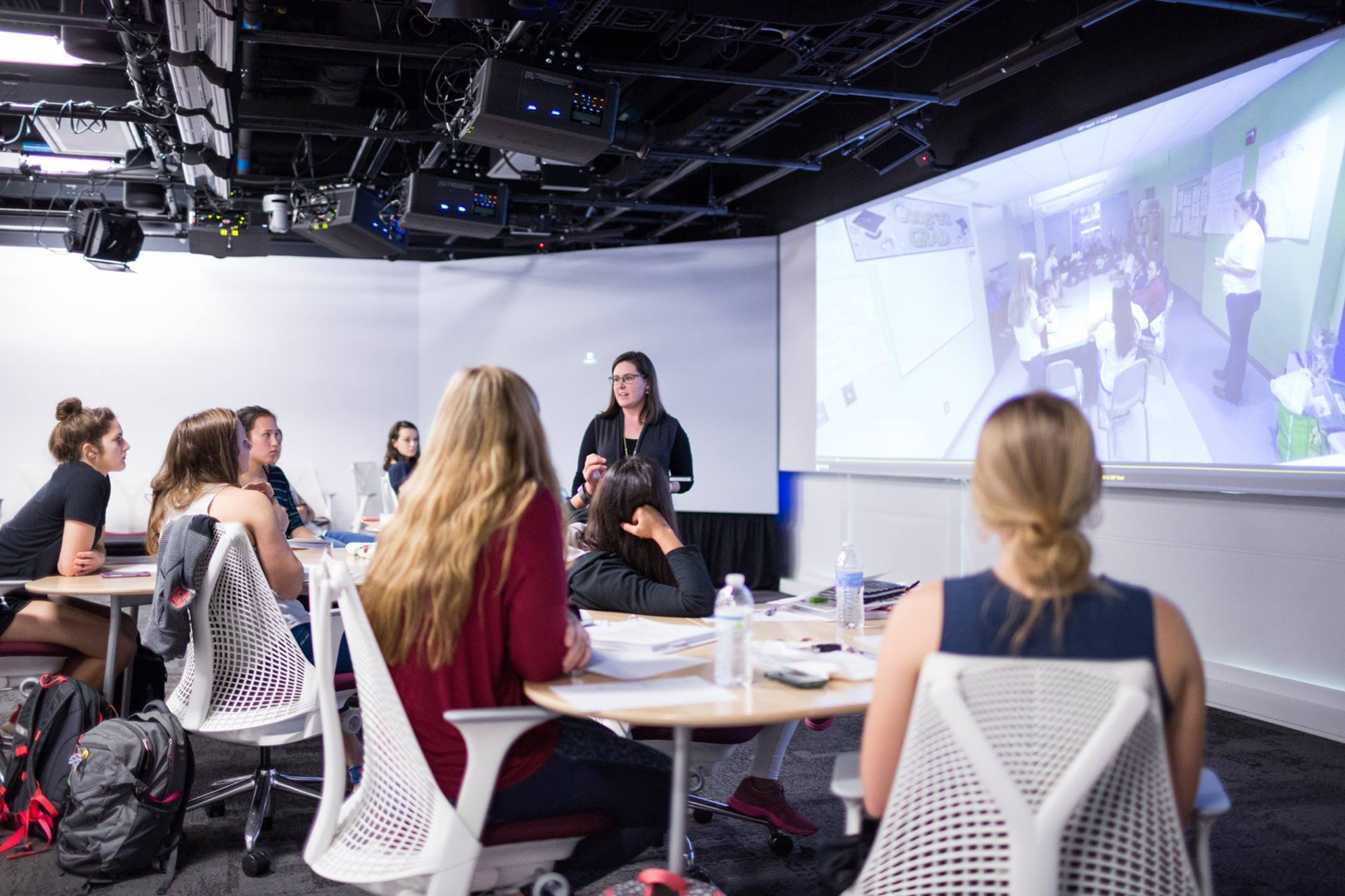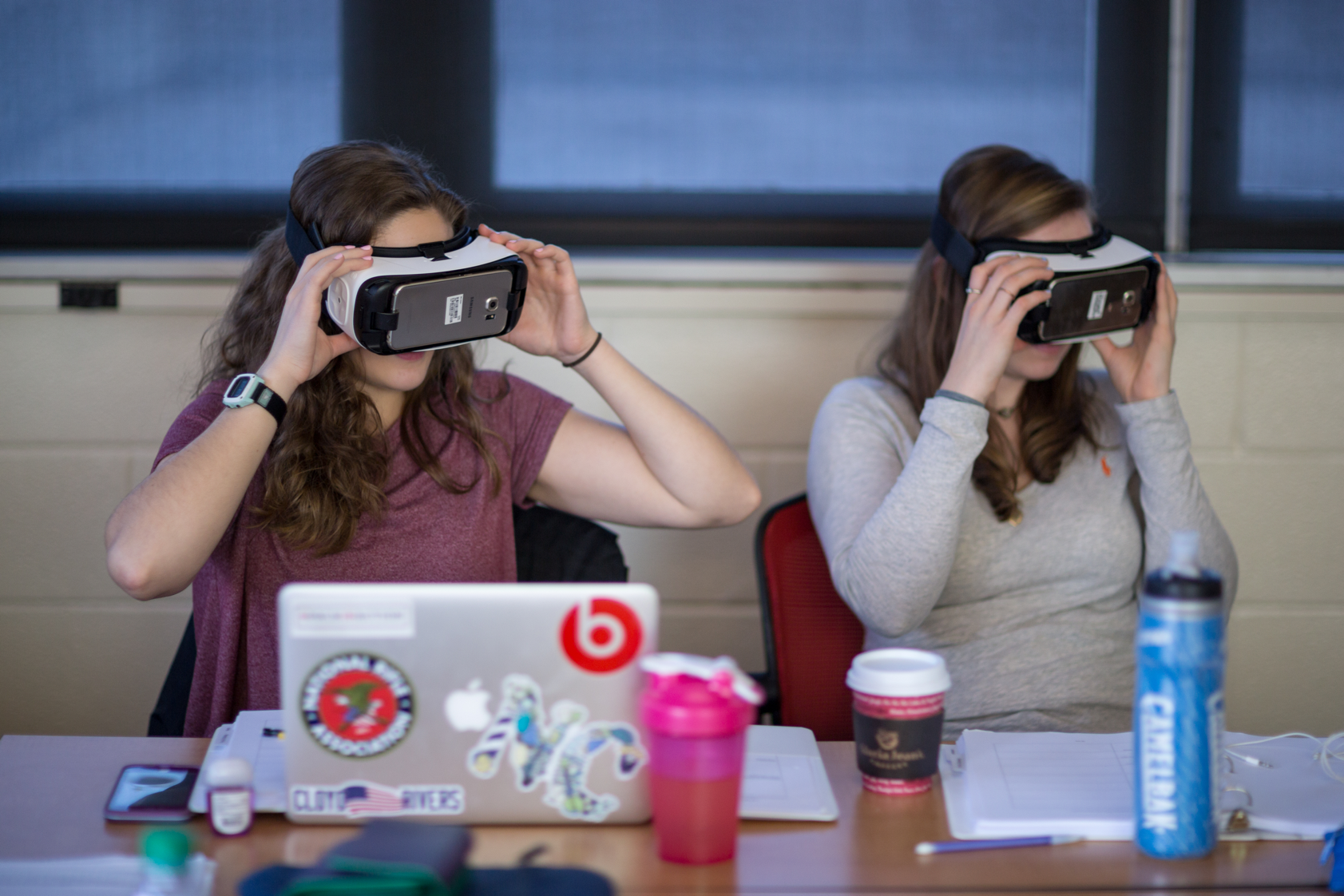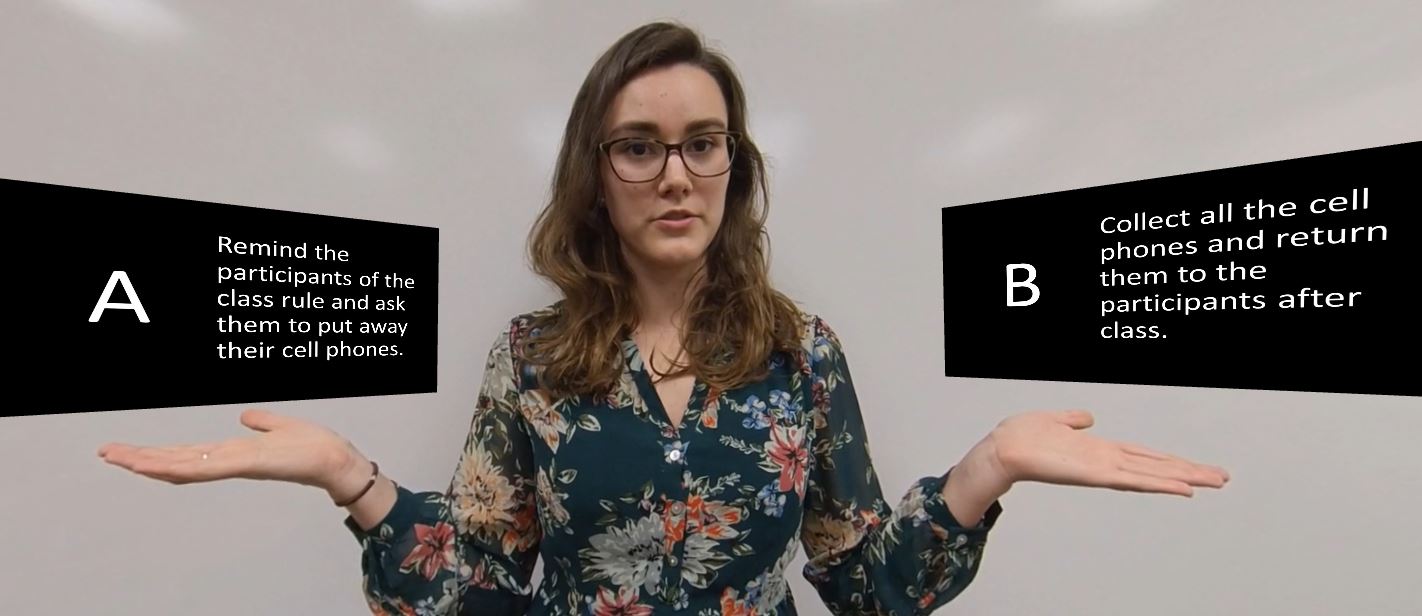DELTA Grant Nutrition Faculty Receive Gertrude Cox Award

When Associate Professor Suzie Goodell and Assistant Professor Natalie Cooke began working with DELTA in 2013, Cooke was a grad student just beginning to learn about 360° videos and the flipped learning model. Fast forward to 2015 when Cooke and Goodell were awarded a DELTA grant to explore incorporating 360° videos and virtual reality (VR) case studies in a Community Nutrition service-learning course. Then, in 2018, Cooke was awarded a Food, Bioprocessing and Nutrition Sciences (FBNS) Distance Education (DE) grant to adapt the pre-service-learning training portion of the course from face-to-face to a hybrid flipped course.
Before applying for the DELTA grant, Cooke and Goodell co-taught Community Nutrition and kept receiving feedback from students that if only students could vicariously experience a community-based nutrition education course, it would greatly reduce the pressure on them when they led their own nutrition education classes in the community for the first time. Because one of Cooke’s research interests is self-efficacy, she quickly began thinking of ways to design VR experiences to help improve students’ self-efficacy in nutrition education. Building upon work from the DELTA grant, the purpose of the FBNS DE grant was to improve students’ self-efficacy in working with diverse populations, including children, older adults and international learners. These grants allowed Cooke and Goodell to collaborate with Creative Director Mike Cuales, Senior Instructional Designer Cathi Dunnagan, and Lead Instructional Designer Jessica White, who works at both DELTA and in FBNS. Teams of undergraduate and graduate students also helped this project come to life.

The team discovered the flipped learning model worked especially well when it involved students viewing the content videos at home, responding to a quiz about the content, and then completing group work in a classroom on campus. Some of the in-person group work included viewing VR scenarios on headsets and discussing the scenarios in small lab groups, helping build teamwork among team members.

A unique outcome of this project was demonstrating to students how group work can make teaching go much more smoothly than a lone wolf approach. The new course design allows students to think about how to work with others because these skills are built into course expectations. Goodell notes, “The course is enhanced because of the technology; it’s not one versus the other — and I think that’s really the whole goal of teaching technology is not to replace but to enhance.” Another unique component of this project was that the DELTA team got to experience first-hand the environments in which students would be teaching, such as at local youth programs and senior living communities.
The team encountered some challenges along the way, particularly in the spring of 2020. Cooke noted having created the flipped material before that semester was a lifesaver when the university shifted to remote learning due to the COVID-19 pandemic. She also explained how moving to remote learning allowed students to see ways that they might creatively adapt in their future careers. At the same time these students were developing skills in virtual nutrition education, nutrition educators across the country were also figuring out how to deliver their own lessons online. Cooke mentioned that Professor Emerita Sarah Ash always says, “Everything is reflection-worthy.” She discussed some issues that arose with the technology, such as some students experiencing motion sickness from the VR headsets or the headsets getting overheated. Because the team had created a web-based version of the lesson in addition to the VR version, faculty could easily modify the lesson based on student needs.

This spring, Cooke and Goodell were awarded the Gertrude Cox Award for Innovative Excellence in Teaching and Learning with Technology. This award was created to honor the creative pedagogy of NC State’s faculty and their work in integrating new technologies into effective teaching strategies. One student nominator noted, “The VR experience embedded in the course was a beneficial tool because it allowed me and other students in the class the opportunity to go on ‘field trips’ without ever leaving the class.” A TA and former student of Cooke’s wrote, “Similar to my own experience with the virtual reality demonstrations, I noticed my students catching on more quickly to things I did not notice when I was going through training for service-learning. One example is when I didn’t notice how community members weren’t holding knives properly until I watched the demonstration through virtual reality. Small details like this one are important to notice in nutrition education and were more noticeable through virtual reality to both me and my students.”
Cooke and Goodell report that they were extremely appreciative of the collaboration and support they received from the DELTA team. Goodell says, “There were so many instances where if we were on our own, this project would have stopped… but because we had that partnership with DELTA, we were able to do infinitely more things to support our students and what they’ll do in the future.”
White notes that she was especially appreciative of Cooke’s responsiveness and readiness to go the extra mile when it came to learning new technologies. Cooke commented, “…being able to say that this work continues is really important, that DELTA grants don’t just end with the money; it is the start of collaboration with a team of really amazing instructional design professionals.”
For more, see:
- A ‘Spark’ for Nutrition Science
- DELTA Grants Make VR a Reality
- DELTA Grant Leads to Student Presentations at Symposium
- Exploratory Grants Generate Solutions
This post was originally published in DELTA News.
- Categories:


